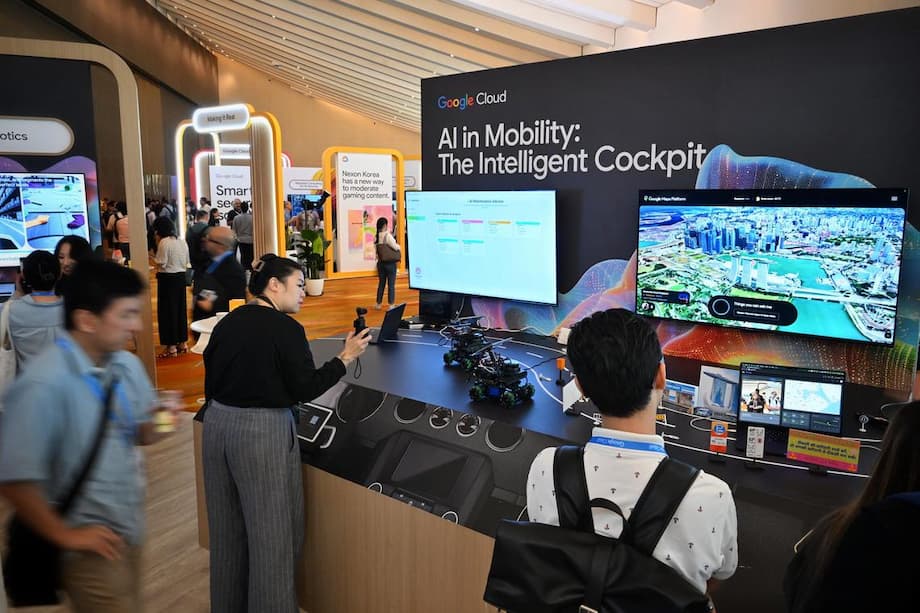Singapore’s Bold Step: Testing Autonomous AI Agents in Public Services
Singapore is embarking on a groundbreaking trial to deploy autonomous artificial intelligence (AI) agents within its public sector, aiming to revolutionize how citizens and businesses interact with government services. The initiative, announced by Minister for Digital Development and Information Josephine Teo, positions Singapore at the forefront of digital governance, leveraging advanced AI to streamline complex processes, improve efficiency, and enhance the citizen experience. But what exactly are autonomous AI agents, and why is this move so significant for Singapore and potentially the world?
- Singapore’s Bold Step: Testing Autonomous AI Agents in Public Services
- What Are Autonomous AI Agents and Why Do They Matter?
- Singapore’s AI Agent Trial: Who’s Involved and What’s the Plan?
- How Will AI Agents Change Public Services?
- Challenges: Safety, Security, and Accountability
- Opportunities for Innovation and Economic Growth
- What’s Next for Singapore’s Digital Government?
- In Summary
What Are Autonomous AI Agents and Why Do They Matter?
Autonomous AI agents—sometimes called agentic AI—are digital assistants that can reason, plan, and act on behalf of users. Unlike traditional software, which follows pre-programmed rules, these agents can learn from data, adapt to new situations, and operate independently to complete complex tasks that would typically require human intervention. For example, an AI agent could help a business owner apply for multiple licenses across different agencies or assist a social worker in navigating the paperwork required for government aid.
According to the Singapore Government Developer Portal, agentic AI systems are designed to autonomously pursue objectives and execute tasks, making them particularly well-suited for the multifaceted workflows of public service delivery. These agents can analyze vast datasets, make decisions, and even take actions—such as scheduling inspections or sending reminders—without constant human oversight.
Transforming Public Service Delivery
The potential benefits are substantial. By automating repetitive and time-consuming tasks, AI agents can free up government employees to focus on more impactful work, such as counseling or policy development. For citizens and businesses, this means faster, more transparent, and more personalized services. As highlighted by ServiceNow, AI-driven government services can increase trust, optimize resource allocation, and improve constituent experiences, especially in areas where legacy systems have created bottlenecks.
Singapore’s AI Agent Trial: Who’s Involved and What’s the Plan?
The trial is a collaborative effort involving the Government Technology Agency (GovTech), the Cyber Security Agency of Singapore (CSA), and the Infocomm Media Development Authority (IMDA), with technology support from Google Cloud. The group will experiment with deploying AI agents in real-world scenarios, such as helping businesses navigate licensing processes or assisting social workers with administrative requirements. The goal is to evaluate the effectiveness, safety, and accountability of these systems before considering broader implementation.
Minister Josephine Teo emphasized the importance of understanding not just how these agents work, but also when human oversight is necessary and who is accountable if something goes wrong. The government is prioritizing three key principles: safety, authority, and accountability. This means ensuring that AI agents operate within clearly defined boundaries, that their actions are transparent and auditable, and that there is always a clear line of responsibility for decisions made by the system.
Google Cloud’s Role and Data Residency
Google Cloud is a central technology partner in this initiative. At the recent “AI Asia: Building Beyond Borders” conference, Google announced that its advanced AI models—such as Gemini 2.5 Flash and Vertex AI Search—will now be locally accessible in Singapore. This is a crucial development, as it allows organizations to process sensitive data within Singapore’s borders, addressing concerns about data privacy and compliance. GovTech is already using Google’s AI models on secure, internal systems, ensuring that sensitive information remains within controlled environments.
This local data residency is particularly important for sectors like banking and healthcare, where data security is paramount. By enabling AI development and training on-premises or in air-gapped (disconnected from the internet) configurations, Singapore can harness the power of AI while maintaining strict control over its data.
How Will AI Agents Change Public Services?
Singapore’s trial is not happening in a vacuum. Around the world, governments are exploring how AI agents can transform public service delivery. According to DXC Technology and ServiceNow, AI agents are already being used to:
- Automate knowledge retrieval and customer service queries
- Analyze data for fraud detection and policy optimization
- Personalize communications and recommendations for citizens
- Streamline administrative processes, such as tax administration and benefits eligibility
In Singapore, the initial focus will be on use cases where AI can make the biggest impact: simplifying business licensing, automating paperwork for social services, and improving internal government workflows. For example, an AI agent could guide a business owner through the entire licensing process, automatically gathering required documents, filling out forms, and scheduling inspections across multiple agencies. For social workers, AI agents could handle routine paperwork, freeing up time for direct client support.
Global Comparisons and Lessons Learned
Other cities and countries are also experimenting with AI agents in government. Raleigh, North Carolina, uses AI for weather forecasting and urban planning, while Amsterdam has created an AI registry for transparency. Italy’s Ministry of Cultural Heritage deployed an AI agent to simplify access to millions of library records. These examples show that while the technology is promising, successful implementation requires leadership commitment, robust data strategies, and ongoing training for staff.
Challenges: Safety, Security, and Accountability
With great power comes great responsibility. The autonomy of AI agents introduces new risks, particularly around security, unintended consequences, and accountability. As Fast Company reports, security researchers have demonstrated that AI agents can be manipulated to override their programming, potentially leading to harmful or unintended actions. Andy Zou, a researcher at Gray Swan AI, warns that current AI agents can be “naive,” easily tricked into making mistakes or taking inappropriate actions.
Andy Zou, IT security researcher, explained: “We found you can essentially manipulate the AI to override its programming.”
Singapore’s government is acutely aware of these risks. The trial will focus on establishing robust guardrails, such as policy-driven constraints, least-privilege access, explicit approval gates for risky actions, and comprehensive audit logs. According to InfoWorld, best practices for agentic AI include designing for robust control, seamless integration with cloud platforms, and continuous adaptation through feedback loops and retraining. This ensures that AI agents remain aligned with business goals and do not become sources of unexpected crises.
Building Trust Through Transparency
Transparency is another critical factor. Citizens need to understand how decisions are made, especially when AI is involved. Singapore’s approach includes clear documentation of AI agent actions, regular audits, and mechanisms for human intervention when necessary. The government is also engaging with stakeholders—including developers, product managers, and researchers—to refine and improve AI deployments.
Opportunities for Innovation and Economic Growth
Beyond improving public services, Singapore’s AI agent trial has broader implications for the country’s digital economy. By positioning itself as a leader in AI governance and innovation, Singapore can attract investment, foster local talent, and create new opportunities for businesses. Google Cloud’s expanded data residency and AI capabilities are already being leveraged by major enterprises like DBS Bank and FairPrice Group, which are using AI-powered assistants to enhance customer experience and operational efficiency.
The government’s partnership with Google Cloud and local institutions like the National University of Singapore (NUS) is also enabling new research collaborations in fields such as life sciences, further strengthening Singapore’s position as a regional hub for AI innovation.
Scaling Up: From Pilot to Nationwide Adoption?
While the current trial is limited in scope, the lessons learned will inform future deployments across the entire government. The Agentic AI Primer published by the Singapore Government provides a roadmap for scaling up, emphasizing the need for careful assessment of use cases, performance evaluation, and compliance with data security and ethical standards.
What’s Next for Singapore’s Digital Government?
Singapore’s trial of autonomous AI agents is a bold experiment in digital governance, with the potential to set new standards for how governments around the world use technology to serve their citizens. By focusing on safety, accountability, and innovation, Singapore aims to harness the benefits of AI while minimizing risks. The coming months will be critical as the government evaluates the outcomes of the trial, gathers feedback from users, and refines its approach.
If successful, autonomous AI agents could become a cornerstone of Singapore’s smart nation vision, enabling more responsive, efficient, and citizen-centric public services. The world will be watching closely to see how Singapore navigates the challenges and opportunities of this new era in digital government.
In Summary
- Singapore is piloting autonomous AI agents to enhance public service delivery, focusing on complex tasks like business licensing and social services paperwork.
- The trial involves GovTech, CSA, IMDA, and Google Cloud, with an emphasis on safety, authority, and accountability.
- Google Cloud’s AI models are now locally accessible, enabling secure processing of sensitive data within Singapore.
- AI agents promise to streamline workflows, improve efficiency, and personalize citizen experiences, but also introduce new risks around security and accountability.
- The government is implementing robust controls, transparency measures, and stakeholder engagement to ensure responsible AI deployment.
- Singapore’s initiative could serve as a model for digital governance worldwide, driving innovation and economic growth while safeguarding public trust.












